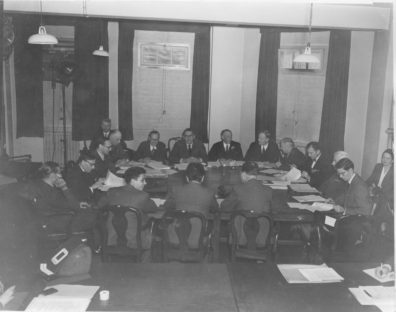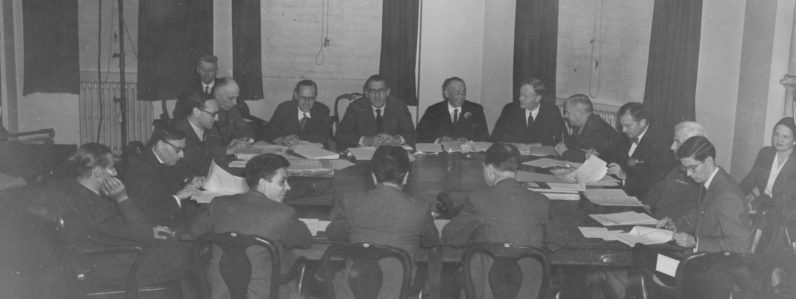
For over a month, during the summer of 1945, representatives of the Soviet, French, U.S. and U.K. governments attempted to reconcile their conflicting legal concepts and devise a workable procedure for the trial. At the core of these intense negotiations was Robert H. Jackson. Jackson refused to back down on certain legal principles, most importantly, the position that aggressive warfare was an international crime. “Our view, is that this isn’t merely a case of showing that these Nazi Hitlerite people failed to be gentlemen in war; it is a matter of their having designed an illegal attack on the international peace.” After weeks of discussions, that included debates on individual responsibility, state sovereignty, definitions of aggression, the issue of retroactivity, and the causes of war, the Allies created the first International Criminal Court. The delegates at the London Conference defined crimes that are now the foundations of modern international law.
Report of Robert H. Jackson, United States Representative to the International Conference on Military Trials : London, 1945
For a complete list of the London Conference minutes visit The Avalon Project.
Robert H. Jackson's Notes
The conference at London was planned for June 25, 1945. We arrived and were ready for it, as were all of the other delegations but the Russian delegation did not appear until June 26th, when the conference finally got under way. Criticism of my appointment, upon the grounds that the President should not have called upon a member of the Supreme Court, would have to be weighted in the light of its affect on the choice of representatives of the other countries. There was no doubt that the position of justice of the Supreme Court carried with it great weight with foreign delegations in two ways. In the first place, the representative who held that life position of the independence and power had among the legal profession a good deal of prestige by reason of the office. In the second place, it led the governments abroad to endeavor to match that prestige by sending men high in their legal systems.
The Reminiscences of Robert H. Jackson Columbia Univ. Oral History Research Office, 1955

